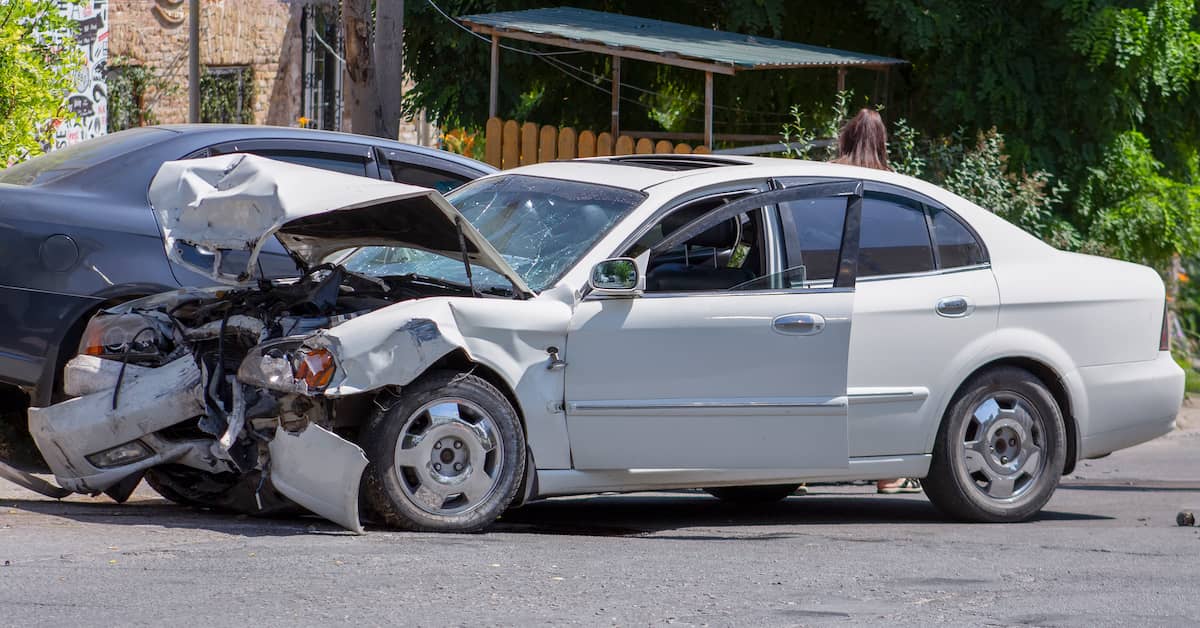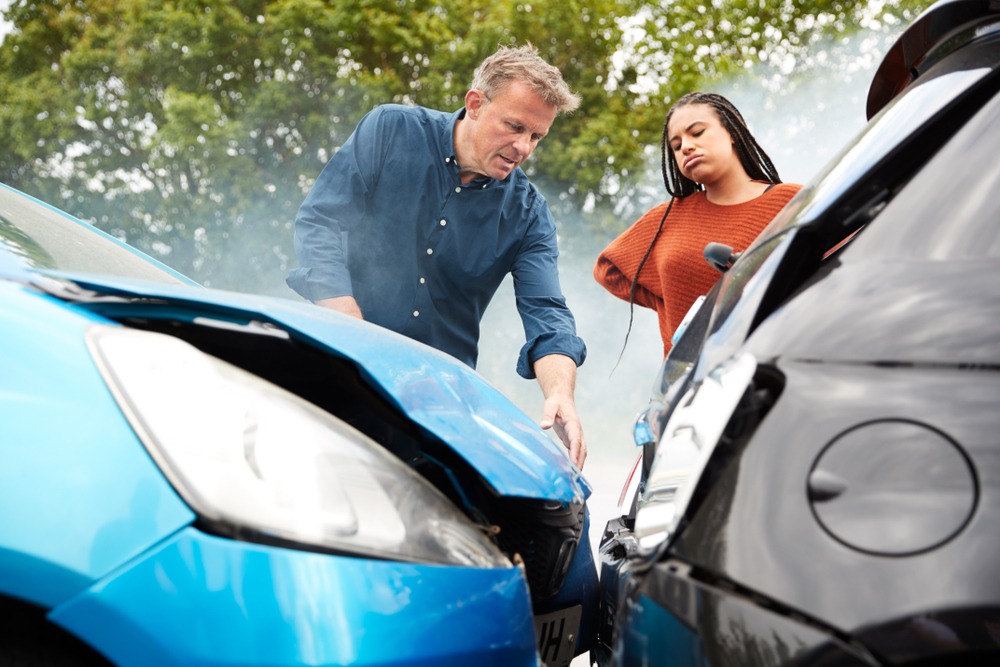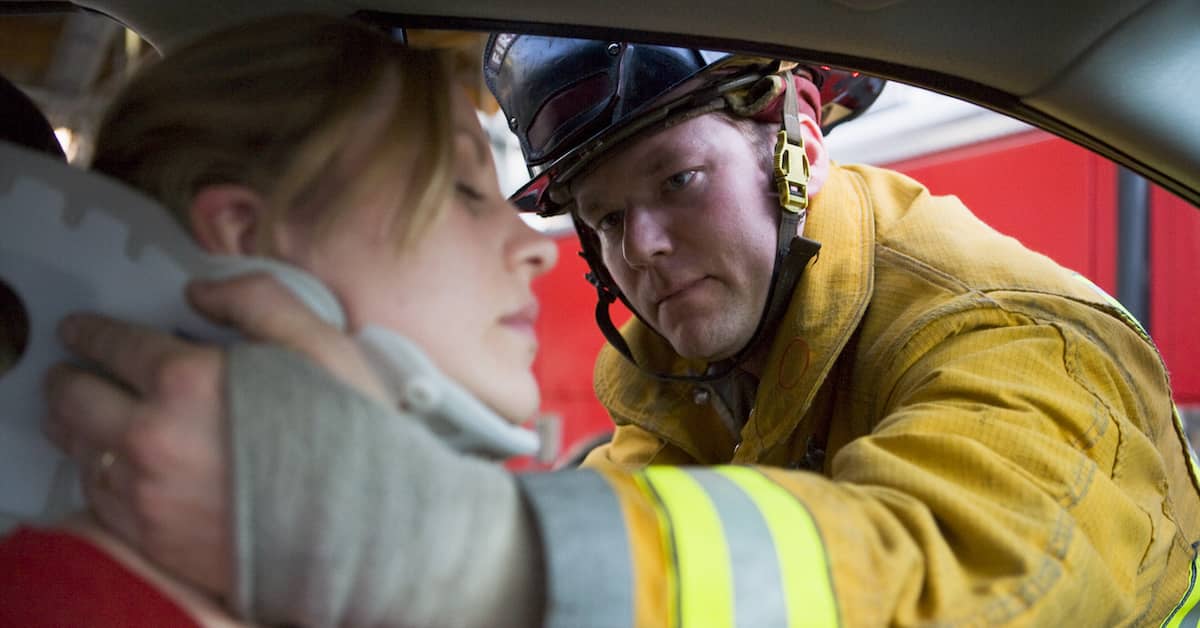
Who Pays for Car Damage in a No-Fault State?
Car crashes can be devastating and confusing, but our car accident attorneys can help you understand the damages you may be due and your legal options for recovery. In a no-fault state like New Jersey, you may be using your own car insurance in addition to making a fault-based claim after a collision.
The ins and outs of insurance and liability in a no-fault state are complex. We’ve written this guide to help you understand who pays for car damage in a no-fault state. We will also discuss property damage claims, how to file them, and when you may be entitled to additional compensation for losses sustained in the accident.
If you’ve been in a car accident in New Jersey and you’re unsure how to proceed, it’s in your best interest to contact an experienced lawyer. The knowledgeable car accident attorneys at Maggiano, DiGirolamo & Lizzi can review your insurance coverage and advise you of your legal rights and options. Call (201) 585-9111 today for a FREE consultation.
New Jersey Is a No-Fault State: Who Pays for Car Damage?
Contrary to how it may sound, the party who pays for car damage in a no-fault state is, in fact, the person at fault for the accident. The no-fault law does not apply to property damage.
In a no-fault state (like New Jersey), each driver’s insurance will pay for their medical costs, lost wages, and essential services no matter who is to blame for the accident. However, the at-fault driver will still be held responsible for vehicle repairs.
One or more parties could be at fault in a collision. Police and insurance adjusters will take into account the circumstances of the accident, the drivers’ accounts, and the local law to determine fault.
If the other driver is found to have caused the accident and there is damage to your car, you may file a property damage claim with the other driver’s insurance provider. Repairs will be paid for by their liability insurance. If an at-fault driver’s car is damaged, their collision coverage will pay for repairs.
Read More: What Does No-Fault Car Insurance Cover In New Jersey?

Property Damage Claims
When paying for car damages in a no-fault state, liability, collision, and uninsured/underinsured motorist policies may all come into play.
Liability
Covers the other driver’s property damage costs if you are at fault.
Collision
Covers repairs or replacement of your car if it is damaged in a collision for which you are responsible.
Uninsured/Underinsured Motorist
Pays for damage to your car if you are hit by someone with no liability insurance or a policy that is inadequate to cover your damages.
What to Do When:
The Other Driver Is At Fault
File a claim with the driver’s insurance company. Property damage liability insurance will cover the damage to your car up to the limits of their policy.
You Are At Fault
File a claim with your insurance company. Your liability insurance will cover the damages incurred by other parties involved. Collision insurance will cover the damage to your own vehicle.
You’re Not Sure Who Is At Fault
File a claim with both insurance companies. An adjuster will investigate the accident, decide who is at fault, and “assign a percentage of liability to the parties involved in the accident based on contributing factors” (New Jersey Department of Banking & Insurance).
Modified comparative negligence law stipulates that a party cannot collect damages if their degree of fault is greater than that of the party from whom they are seeking those damages. New Jersey has a 51% rule, meaning a party can collect damages from the other party or parties involved unless their level of fault exceeds that of the defendant(s).
Additionally, damages paid to you will be reduced by your percentage of liability. For instance, if you are found to be 30% at fault and your damages equal $1,000, you will be entitled to $700 from the other party’s insurance company.
An Uninsured or Underinsured Motorist Is At Fault
File a claim with your insurance company if you have uninsured/underinsured motorist coverage. This type of policy is not required in New Jersey but can be of use in the event that your car is hit by a driver without liability insurance or with insufficient coverage to pay for your damages in full. If you don’t have this type of insurance, your collision coverage may be used to pay for repairs to your vehicle.
You Are the Victim of a Hit and Run
File a claim with your insurance company. Your collision or your uninsured/underinsured motorist coverage should cover the damage to your car in a hit-and-run accident.
How to File a Property Damage Claim
1. Report the damage to your insurance company as soon as possible
Even if the accident wasn’t your fault, your insurance company may work with the at-fault driver’s insurance company on your behalf.
2. File a police report and get a copy
Keep all documentation for your insurance adjuster, including photos of the scene and damage to your vehicle. This paperwork will also be helpful if you end up needing the help of car accident attorneys.
3. File a claim with your insurance company and/or the claims department at the at-fault driver’s insurance company
You may be allowed time to file (6 years in New Jersey, 3 years in New York), but the longer you wait, the more difficult it will be to prove your claim.
4. Work with an insurance adjuster
Provide the adjuster with everything they need to assess the situation, including documentation and your account of the accident. The adjuster will determine who is at fault and the percentage of liability for which each party is responsible.
5. Get your vehicle repaired
Going with the insurance company’s suggested shop means that they may pay the shop directly and authorize any additional repairs that come up during service. However, the mechanic will likely use aftermarket parts to repair your vehicle.
6. Finalize your insurance payout
If you feel that any insurance companies involved aren’t treating you fairly, contact a car accident attorney to review your claim.
What Other Damages Can You Recover From a Car Accident in a No-Fault State?
States with no-fault laws ensure that medical costs related to injuries from a car accident are covered by the driver’s own insurance company, no matter who is at fault. In New Jersey, you are required to carry personal injury protection (PIP) coverage. After an accident, you would generally file a PIP claim with your own insurance company to pay for medical costs and partial replacement of lost wages.
New Jersey drivers can choose between two options for their car insurance coverage. A basic policy limits the driver to no-fault coverage for most accidents. A standard auto accident policy expands your right to sue.
If you’ve chosen a basic insurance policy, you have the right to sue if the accident results in dismemberment, significant disfigurement, significant scarring, displaced fractures, loss of a fetus, or permanent injury. If you suffered any of these injuries or you have opted for standard auto insurance, you can file a lawsuit to recover the following damages:
- Current & future medical expenses
- All lost wages
- Loss of earning capacity
- Personal property damage
- Pain & suffering
- And more
Bottom line: accidents can result in more than just damage to your vehicle. Car accident attorneys can review your case and pursue compensation for all of the losses you have suffered.
Contact Our New Jersey Car Accident Attorneys Today
If you have been in a car accident in Fort Lee or anywhere in New Jersey or New York and you’ve suffered property damage or injury, contact a car accident attorney as soon as possible. The experienced car accident attorneys at Maggiano, DiGirolamo & Lizzi can review your insurance coverage and counsel you on your legal rights and options.
With over 80 years of combined experience and an understanding of the complexities of New Jersey’s no-fault, comparative negligence, and insurance laws, we are committed to recovering the damages you deserve. Contact us today for a FREE consultation.

















